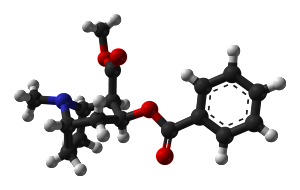
C17H21NO4
Hire a DUI Attorney Who Knows the Law and the Science
The Florida DUI statute is FL Stat 316.193. Here is what it says in a nutshell, the state must prove beyond a reasonable doubt that:
1. You were in actual physical control of a motor vehicle;
2. On the streets, highways or a public vehicular area within the State of Florida;
3. While impaired by alcohol, certain inhalants listed in FL Stat 877.111 or a controlled substance listed in Chapter 893 of the Florida Statutes.
Florida uses urine testing for DUI drug cases with limited exceptions. Drugs typically have longer detection windows in urine tests than in blood tests. Indications of marijuana use can be detected in urine for up to 30 days after ingestion. However, that does not mean that a person is high on marijuana for 30 days. It simply indicates that certain chemical markers are present even after the drug has lost it pharmacological effect. How can a drug stay in your system, yet not make you high? The answer is that it can’t. Once the drug a/k/a the “parent compound” enters your system, it begins to break down into metabolites. For purposes of this example, metabolites can be divided into 2 categories. 1) active metabolites – has a pharmacological effect and 2) inactive metabolites – doesn’t have a pharmacological effect. So what substance did the toxicologist find in the urine? Was it the parent compound? Was it an active metabolite? Was it an inactive metabolite? A DUI attorney needs to know how a drug metabolizes in a person’s system and what substance is being detected on a drug screen. As you can see in the DUI deposition below, an individual was accused of driving under the influence of cocaine. He hired a good defense attorney, Daniel Rosenberg, who understands the limitations of urinalysis. As a result, the client’s DUI was reduced to a reckless driving and withheld adjudication.
[gview file=”https://yourfloridacriminalattorney.com/wp-content/uploads/2014/09/DUI-Cocaine-Urinalysis-Depo.pdf” save=”1″]
Fort Lauderdale DUI Attorney, Michael Dye, represents individuals charged with all types of felonies and misdemeanors including, but not limited to contempt of court. For more information, please contact Mr. Dye at his Fort Lauderdale or Miami office:
The Law Offices of Michael A. Dye, PA, 1 East Broward Boulevard #700, Fort Lauderdale, FL 33301 (954)990-0525 or
The Law Offices of Michael A. Dye, PA, 2 S Biscayne Blvd, Miami, FL 33131 (305)459-3286
Deposition courtesy of The Law Offices of Daniel Rosenberg, PA


